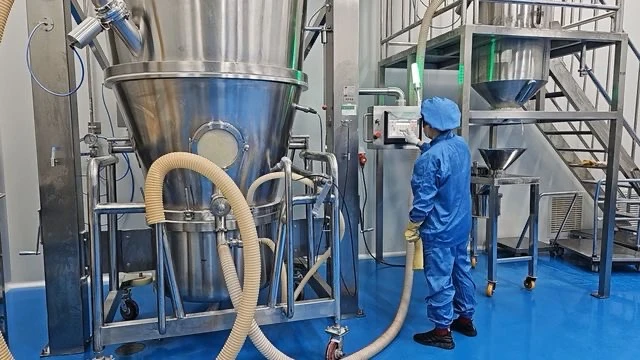- Afrikaans
- Albanian
- Amharic
- Arabic
- Armenian
- Azerbaijani
- Basque
- Belarusian
- Bengali
- Bosnian
- Bulgarian
- Catalan
- Cebuano
- Corsican
- Croatian
- Czech
- Danish
- Dutch
- English
- Esperanto
- Estonian
- Finnish
- French
- Frisian
- Galician
- Georgian
- German
- Greek
- Gujarati
- Haitian Creole
- hausa
- hawaiian
- Hebrew
- Hindi
- Miao
- Hungarian
- Icelandic
- igbo
- Indonesian
- irish
- Italian
- Japanese
- Javanese
- Kannada
- kazakh
- Khmer
- Rwandese
- Korean
- Kurdish
- Kyrgyz
- Lao
- Latin
- Latvian
- Lithuanian
- Luxembourgish
- Macedonian
- Malgashi
- Malay
- Malayalam
- Maltese
- Maori
- Marathi
- Mongolian
- Myanmar
- Nepali
- Norwegian
- Norwegian
- Occitan
- Pashto
- Persian
- Polish
- Portuguese
- Punjabi
- Romanian
- Russian
- Samoan
- Scottish Gaelic
- Serbian
- Sesotho
- Shona
- Sindhi
- Sinhala
- Slovak
- Slovenian
- Somali
- Spanish
- Sundanese
- Swahili
- Swedish
- Tagalog
- Tajik
- Tamil
- Tatar
- Telugu
- Thai
- Turkish
- Turkmen
- Ukrainian
- Urdu
- Uighur
- Uzbek
- Vietnamese
- Welsh
- Bantu
- Yiddish
- Yoruba
- Zulu
డిసెం . 26, 2024 04:14 Back to list
Ivermectin Injection Usage in Alpacas for Effective Parasite Control and Health Management
Ivermectin Injection for Alpacas An Overview
Ivermectin is a widely used antiparasitic medication that has proven to be effective in treating a variety of parasitic infections in various animal species, including alpacas. Originally developed for veterinary use, Ivermectin has become an essential tool in managing parasite-related diseases in livestock. This article aims to explore the application of Ivermectin injection in alpacas, its effectiveness, safety considerations, dosage guidelines, and overall importance in maintaining the health of these unique animals.
Understanding Ivermectin
Ivermectin belongs to a class of drugs known as macrocyclic lactones. It works by targeting the nervous system and muscle function of parasites, resulting in paralysis and death. It is effective against a wide range of parasites, including nematodes (roundworms), arthropods (lice, mites, and ticks), and some ectoparasites. The broad spectrum of activity makes Ivermectin a go-to choice for veterinarians treating conditions caused by both internal and external parasites.
The Importance of Ivermectin for Alpacas
Alpacas are prone to various parasitic infections due to their grazing habits and the environments in which they are often raised. Common parasites that affect alpacas include gastrointestinal nematodes, lungworms, and external parasites like mites and lice. These infections can lead to health problems such as weight loss, anemia, and skin irritation, which can ultimately affect an alpaca's overall well-being and productivity.
Using Ivermectin injections offers several benefits for alpaca owners
1. Effective Treatment Ivermectin effectively eliminates multiple types of parasites, ensuring that alpacas remain healthy and productive.
2. Convenience The injectable form of Ivermectin allows for easy administration, especially in large herds. This can be particularly beneficial during seasonal working periods when stress levels in animals can rise.
3. Long-lasting Effects Ivermectin has a sustained activity in the bloodstream, providing lasting protection against reinfestation and ensuring that animals stay parasite-free for an extended period.
Dosage and Administration
ivermectin injection for alpacas

The dosage of Ivermectin can vary based on the specific needs of the alpaca and the type of parasites being targeted. Typically, the recommended dosage for alpacas is around 200 micrograms per kilogram of body weight. It is crucial to calculate the correct weight of the animal to avoid under-dosing or overdosing, both of which can lead to treatment failure or adverse reactions.
Ivermectin injections can usually be administered either subcutaneously (under the skin) or intramuscularly (into the muscle). It is essential to follow the manufacturer's instructions regarding the method of administration and to use sterile techniques to prevent infection.
Safety Considerations
While Ivermectin is generally considered safe, there are some precautions that alpaca owners should be aware of
1. Weight Accuracy Always double-check the weight of the animal before administering the drug to avoid dosing errors.
2. Pregnant and Lactating Females Consult with a veterinarian before using Ivermectin in pregnant and lactating alpacas, as the safety during these periods may not be fully established.
3. Drug Interactions Be mindful of the possibility of drug interactions if the alpaca is receiving other medications. Always consult with a veterinarian if in doubt.
4. Withdrawal Times If the alpacas are raised for meat or milk, proper withdrawal times should be adhered to before slaughter or milking post-treatment.
Conclusion
In conclusion, Ivermectin injection is a powerful tool in the arsenal of alpaca health management. Its broad-spectrum efficacy against various parasites, ease of administration, and relatively low risk of adverse effects make it an invaluable resource for maintaining the health of alpacas. Nonetheless, vigilant management practices, including accurate dosing, monitoring for side effects, and adherence to veterinary guidelines, are fundamental to ensuring the best outcomes for these unique animals. As with any medication, collaboration with a qualified veterinarian is essential for optimizing the use of Ivermectin in alpacas, ensuring their health and productivity for years to come.
-
Guide to Oxytetracycline Injection
NewsMar.27,2025
-
Guide to Colistin Sulphate
NewsMar.27,2025
-
Gentamicin Sulfate: Uses, Price, And Key Information
NewsMar.27,2025
-
Enrofloxacin Injection: Uses, Price, And Supplier Information
NewsMar.27,2025
-
Dexamethasone Sodium Phosphate Injection: Uses, Price, And Key Information
NewsMar.27,2025
-
Albendazole Tablet: Uses, Dosage, Cost, And Key Information
NewsMar.27,2025













